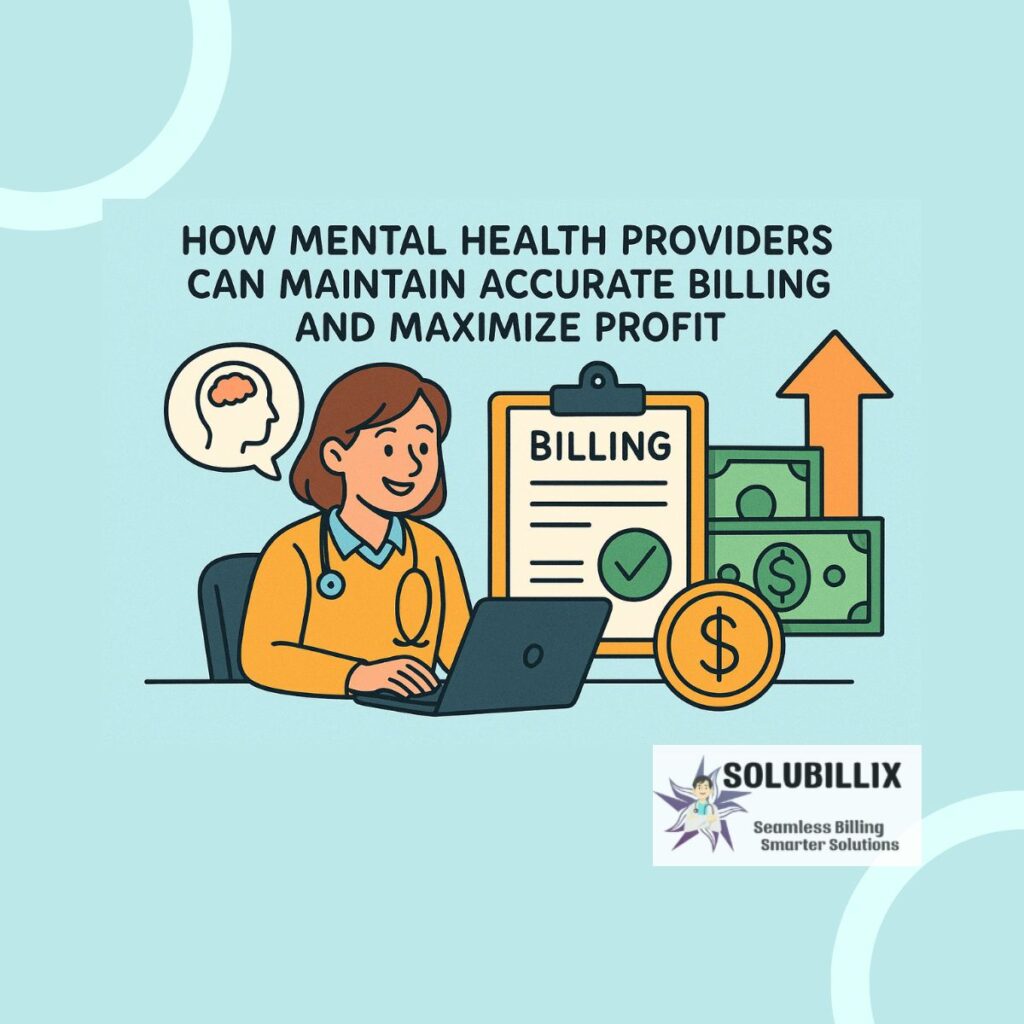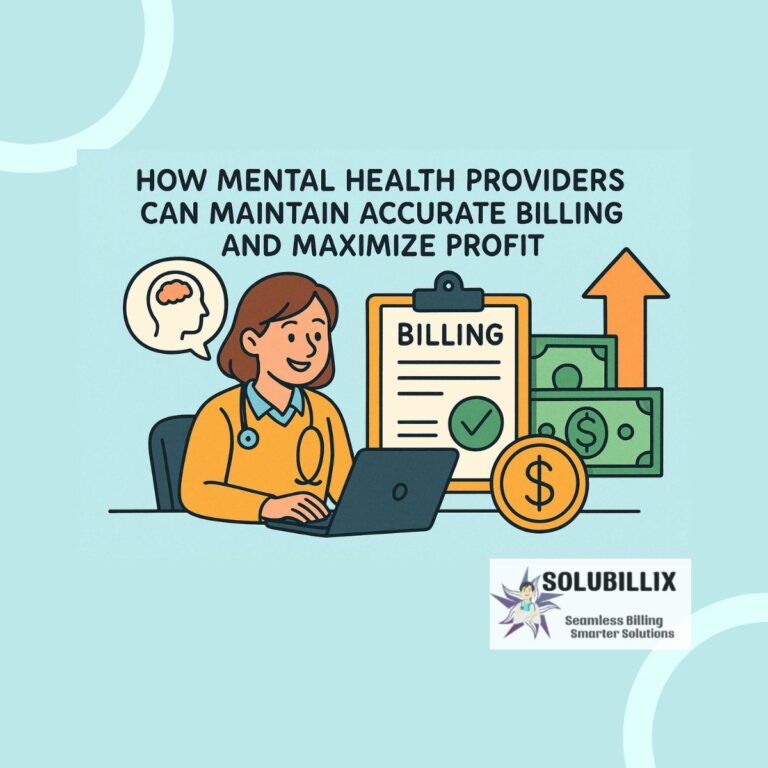Maintaining financial health while delivering quality mental health care is essential for every provider. Effective billing practices not only ensure timely reimbursement but also prevent claim denials, reduce overhead, and improve patient satisfaction. Below are proven strategies to maintain mental health billing accuracy while maximizing profits—without compromising ethical standards or care quality.
1. Stay Compliant with Payer Requirements
Every insurance payer has specific billing rules. Regularly reviewing and updating knowledge of billing codes (such as CPT codes for psychotherapy), modifiers, and documentation standards is essential. Submitting clean claims reduces rejections and accelerates reimbursement cycles.
Tip: Use resources like the AMA CPT manual and payer websites to track code updates.
2. Invest in Specialized Billing Software or Services
Manual billing can lead to errors and lost revenue. Mental health billing software or outsourcing to experienced billing services ensures:
- Accurate code selection
- Automated claim submission
- Real-time tracking
- Fewer denied claims
Such systems can integrate with Electronic Health Records (EHR) to streamline documentation and billing.
3. Conduct Regular Internal Audits
Audit your billing practices monthly or quarterly to catch common issues such as:
- Underbilling or overbilling
- Missing documentation
- Incorrect modifiers
- Unbilled sessions
These audits prevent revenue loss and ensure compliance with HIPAA and payer contracts.
4. Verify Insurance and Eligibility Before Each Session
Verifying benefits and patient coverage before each visit helps avoid costly surprises. Check for:
- Copay or deductible amounts
- Authorization requirements
- Limits on session numbers
- Covered CPT codes
Doing this before treatment protects your cash flow and maintains transparency with clients.
5. Use Accurate and Up-to-Date CPT Codes
Mental health billing relies heavily on CPT codes like:
- 90791 – Psychiatric diagnostic evaluation
- 90834 – 45-minute psychotherapy
- 90837 – 60-minute psychotherapy
- 90847 – Family psychotherapy with patient present
Using the wrong code can lead to denied claims or lower reimbursements. Stay current and bill for the full extent of services provided.
6. Reduce No-Shows and Late Cancellations
Missed appointments are one of the biggest profit drains. Use automated reminders, cancellation policies, and waitlists to fill gaps.
Also, ensure your cancellation policy is clearly explained and documented, and consider charging a nominal fee for late cancellations (as allowed by law and payer rules).
7. Streamline Documentation for Faster Billing
Good documentation supports clean claims. Make sure each session note includes:
- Patient identifiers
- Date and time of service
- Type and duration of session
- Diagnosis and treatment goals
- Progress notes and interventions
Using EHR templates can save time and ensure documentation supports billed codes.
8. Offer Multiple Payment Options
Accepting credit cards, online payments, HSA/FSA cards, and offering payment plans increases collection rates. Clear billing policies should be communicated during intake to avoid confusion.
9. Analyze Billing Reports to Identify Profit Leaks
Regular reporting can reveal where you’re losing revenue. Look for:
- High denial rates by payer
- Unpaid claims
- Common billing errors
- Low collection rates
Use this data to refine your billing practices and increase profitability.
10. Train Your Team (or Yourself) Continuously
Billing for mental health services is complex. Keep your staff (or yourself, if solo) trained in:
- Code changes
- Compliance updates
- Insurance trends
- Patient communication
This reduces errors and improves the revenue cycle.
Final Thoughts
Mental health providers must balance compassion with the need to run a financially sustainable practice. By implementing efficient billing processes, staying compliant, and using the right tools, providers can increase their revenue without increasing their workload or compromising patient care. Profitability is not about billing more—it’s about billing right.





